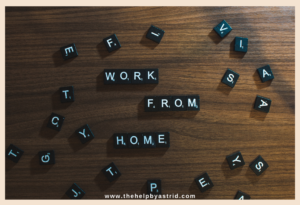
Most people nowadays are obsessed with productivity. We’re always trying to get the most things done in the least amount of time it humanly takes. It’s like a badge of honor. No wonder a lot of people feel burned-out at work.
There are quite a few productivity styles and if you’ve been paying close attention to the articles on this blog, you will find most of them. You may have even tried out a few of them to see which one/s works best for you. That’s great! The point is this…Maybe we all should stop trying to make things happen and start to organize our life and work based on our natural productivity style? What does it mean to find your productivity style? It means using productivity techniques that work with how your brain is built.
The Four Different Productivity Styles are:
1. The Prioritizer
Are you highly efficient and very decisive? Can you zoom in on a focal task? Can you go through a huge amount of work in the quickest way humanly possible? Prioritizers know how to gauge the level of importance of each given task, thus the term prioritizer. While they do have a tendency to be competitive and value speed more than excellence, they are data-driven and are good at analyzing and solving problems. They are very goal-oriented.
2. The Planner
Are you conscious of regulations and protocols? Are you a stickler for details and deadlines? Do you like schedules and lists? Planners are often superb at project management. While they could be rigid and not very spontaneous, they have a keen eye for spotting flaws in a project and love creating processes and plans. They also like to organize data.
3. The Arranger
Do you love collaboration? Are you keen on getting everyone’s input on team decisions? Are you supportive and expressive? Are you a team player? Arrangers are among the best communicators. While they could sometimes be too involved or take too much responsibility in a project, they have a strong intuition and awareness of other team member’s emotions. They are very skilled in persuasion.
4. The Visualizer
Do you hate being bogged down by details? Are your eyes always focused on the bigger picture? Do you like connecting the dots and finding ways to solve a problem? Visualizers are creative and open-minded. They love to innovate and think out of the box. While they can’t be bothered too much with details and may at times fail to plan ahead, they like more holistic approaches to problem-solving.
After reading these four work styles, does any one style in particular call out to you? Can you relate to any of them or do you feel like you have characteristics for more than one work style? Don’t worry if you do, this isn’t a one-style-fits-all guide. Most of us are a combination of any of the four. If you want a more accurate test to know your productivity style, you can take the assessment here. Share your productivity style with us in the comments. Remember to work smart and be a blessing to someone today. Stay safe and healthy!
Written by Jaie O. TheHelp



